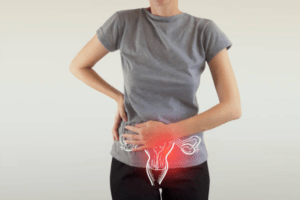Pelvic Floor Physiotherapy aims to enhance the functionality of the pelvic floor muscles. This improvement is achieved through a combination of lifestyle modifications, targeted exercises, education, and a hands-on therapeutic approach, which collectively aim to alleviate or eradicate symptoms. Throughout the therapy process, an evaluation and treatment of the muscles relevant to bowel, urinary, and sexual function are conducted. Dysfunctional muscles in this group can give rise to secondary symptoms such as incontinence, heightened urgency or frequency of urination, difficulties in bowel or bladder emptying, and pelvic discomfort.
Pelvic Floor Dysfunction can stem from various factors, including:
HYPOTONICITY (Weakness of the pelvic floor muscles): This condition manifests as urge incontinence, stress incontinence, and pelvic organ prolapse. It's essential to note that incontinence isn't a typical aspect of aging.
HYPERTONICITY (Tightened pelvic floor muscles): This condition leads to urinary and fecal urgency, urge incontinence, vaginismus, vulvodynia, chronic pelvic pain, dyspareunia, pudendal neuralgia, chronic prostatitis, and interstitial cystitis.

Pelvic Floor Physiotherapy offers benefits to a wide range of individuals, regardless of age or gender. While certain groups may be more prone to experiencing pelvic floor symptoms, anyone can potentially benefit from this form of therapy. Here are some examples of specific groups who may find Pelvic Floor Physiotherapy beneficial:
- Prenatal and Postpartum Individuals: During pregnancy and after childbirth, individuals are at a heightened risk of pelvic floor issues. The physiological changes associated with carrying a baby and the process of labor and recovery can lead to discomfort and dysfunction. Symptoms may include pain in the tailbone, lower back, pelvis, and hips, as well as incontinence, feelings of heaviness, urinary urgency or frequency, and pain during intercourse.
- Post-Menopausal Women: Women experiencing menopause undergo hormonal changes, including decreased estrogen levels. Since estrogen plays a crucial role in pelvic floor function, lower levels of it can lead to symptoms such as incontinence, pelvic heaviness or bulging, increased urinary urgency or frequency, and pelvic pain. Pelvic Floor Physiotherapy can help alleviate these symptoms through tailored treatment approaches.
- Post-Surgical Patients: Following abdominal or pelvic surgery, individuals may encounter pelvic floor issues, either as a result of the surgical procedure itself or due to factors like prolonged catheterization. In such cases, post-surgery physiotherapy aims to reduce pain and enhance scar mobilization, contributing to improved overall pelvic floor function and comfort.

The pelvic floor constitutes a vital aspect of your core musculature, extending beyond just the abdominal muscles. Your core encompasses a broader area, spanning from the diaphragm down to the pelvic floor. It comprises various components, including the abdominal muscles, pelvic floor muscles, low back muscles, and the diaphragm. These interconnected muscles collaborate to provide support to the contents of the abdomen. As such, it is crucial for every component of your core to function optimally.
At Health Club Wellness Clinic, we specialize in providing comprehensive pelvic health physiotherapy services exclusively for female patients. Our dedicated team offers personalized assessment and treatment plans tailored to address various pelvic floor issues and concerns. Our services include:
Thorough Evaluation: We conduct a detailed assessment of pelvic floor function to identify any underlying issues or dysfunctions.
Individualized Treatment Plans: Based on the assessment results, we develop personalized treatment plans to target specific pelvic floor issues, such as incontinence, pelvic organ prolapse, pelvic pain, and postpartum recovery.
Pelvic Floor Exercises: We prescribe targeted pelvic floor exercises aimed at strengthening and optimizing the function of the pelvic floor muscles.
Lifestyle and Behavioral Modifications: We provide guidance on lifestyle adjustments and behavioral modifications to support pelvic health and improve overall well-being.
Education and Support: We offer educational resources and ongoing support to empower our patients with the knowledge and tools necessary to manage their pelvic health effectively.
